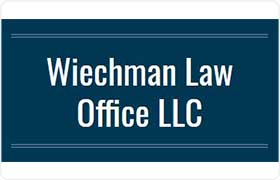Lyndon Collection Lawyer, Kansas
Sponsored Law Firm
-
 x
x

Click For More Info:
-
Wiechman Law Office LLC
1101 Sw 10th Ave. Topeka, KS 66604» view mapBankruptcy & Debt Law A Better Way Forward
Our mission is to guide our clients to a better way of life. We are here to listen. We are here to help. We’ll find a solution that fits you and your situation.
800-969-4051
Not enough matches for Lyndon Collection lawyer.
Below are all Lyndon Bankruptcy & Debt lawyers.
Gary E. Hinck
✓ VERIFIEDGary E. Hinck is an experienced Bankruptcy Attorney who has helped thousands of clients through the Bankruptcy process. Gary and his staff understand ... (more)
Stanley R. Ausemus
✓ VERIFIEDHere at the law offices of Stanley R. Ausemus, Chartered, my mission is to provide quality legal support and counsel to my clients. I have a reputatio... (more)
Russell B Cloon
FREE CONSULTATION
CONTACT Kerry Gasper Topeka, KS
Kerry Gasper Topeka, KS


